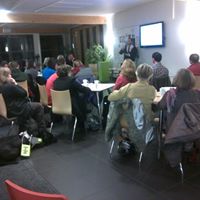SCILL History
Background
Children who require continual extra support at school have many hurdles to overcome as they progress towards adulthood. Their self-confidence can be very low and their anxiety levels high. Their difficulties not only have a profound effect on their progress through the education system, they also have a significant influence on health and social development. Problems with behaviour and attitude can arise at home as well as at school. Many suffer from stress and anxiety. Many parents are trying to minimize the impact of the difficulties their children face, to help them over the hurdles, feel positive about themselves and achieve their full potential. However, most parents feel inadequately prepared for the task.

How did SCIILL start?
SCILL grew from a small group of parents who have children with learning difficulties. To start with, we met for mutual support and to share experiences and information. Our children were facing the challenges of dyslexia, dyspraxia, developmental coordination disorder, autistic spectrum disorders, Asperger’s Syndrome, auditory processing disorders, and Attention Deficit (Hyperactive) Disorder. We recognized the stresses that these difficulties caused our children and other family members.
As the group grew, we saw the need for a more structured approach so in 2003 we drew up a constitution and formed a committee. In June 2003 we became a recognised Scottish charity, working in the Banchory and Deeside area.
SCILL hopes its activities assist parents and professionals to be well informed, able to identify children with learning difficulties and provide them with the most appropriate help and support. SCILL believes that this can be best achieved when parents and professionals work co-operatively.
SCILL also establishes funds to ensure attendance at all SCILL events is open to all and free of charge whenever possible, whether members or not.
In The Past
Presentations and Talks
- Steve Chinn on The Trouble With Maths
- Neil Mackay on Promoting Learning Differences to Remove Barriers to Achievement
- Iain Nisbet of Govan Law Centre reviewing the Additional Support for Learning Act
- Dr Amanda Kirby on Maintaing A Child’s Self Esteem & Transition through Adolesence to Adulthood
- Dr Steve Chinn on Learning Difficulties in Maths
- Helen Copus on Dyslexia
- Ros Blackburn giving an insight into what life is like from an autistic perspective
- Dr Madeleine Portwood on Dyspraxia and Developmental Co-ordination Disorders
- Dr Gavin Reid on Dyslexia & Inclusion & Learning Styles
- Dr Alison Hood on An Eye To The Future
- Dr Bill Brown on Co-morbidities and some of their implications
- ENQUIRE on Education (ASN Scotland) Act
- SCILL Works day of talks, workshops and information stands
- Deborah Plummer Healthy Self-esteem
- Anger Management, interactive presentation in conjunction with Camphill school, Aberdeen
- Self-Esteem and Therapeutic Activities, interactive presentation in conjunction with Camphill school, Aberdeen and Child and Family Mental Health, Aberdeen
- Autism Awareness with Grampian Autistic Society
- Practical Strategies for Anxious Children
Workshops
- Mindfulness
- Emotional Literacy
- Dyslexia
- Maths and Learning Difficulties with Pathways2Progress
- Coping with Challenging Behaviour
- Parenting Strategies
- Reading, Spelling, Writing and Handwriting
- Study Skills
- Autism Awareness
- Concentration and Attention
- Mind-mapping
- Helping to teach your child with additional support needs to swim


